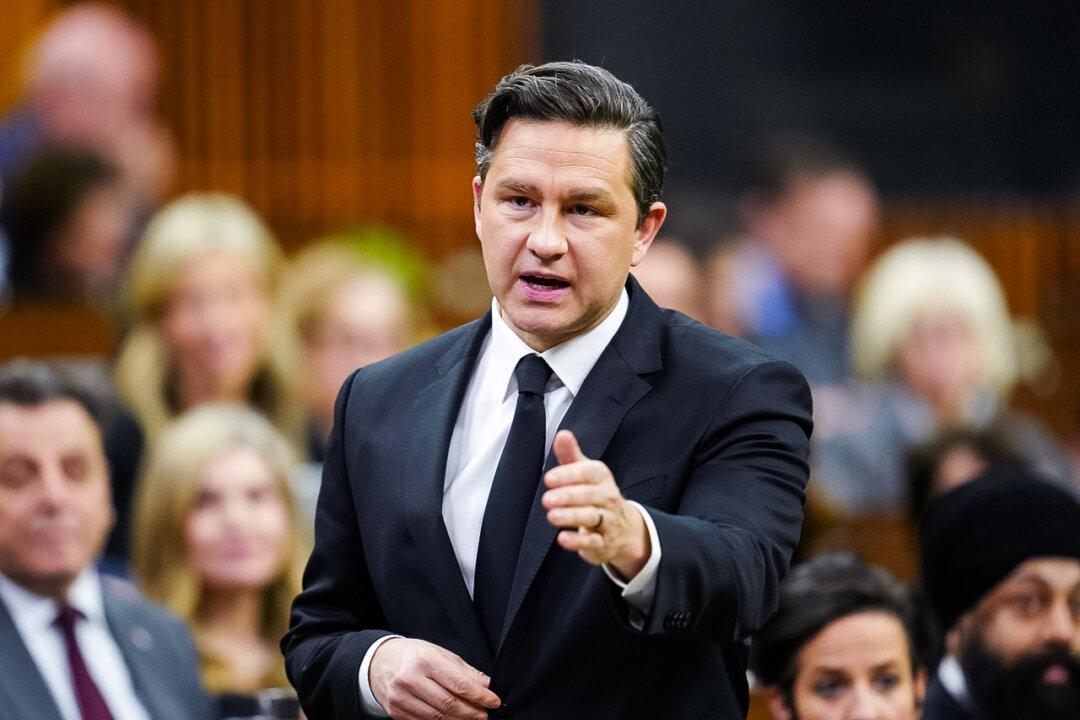Conservative Leader Pierre Poilievre is challenging Prime Minister Justin Trudeau to host a televised “emergency meeting” with the country’s premiers to discuss his government’s 23 percent carbon tax hike.
The Conservatives tabled a motion April 9 calling on Mr. Trudeau to meet with provincial and territorial leaders in a publicly broadcast meeting within five weeks of the motion being adopted. MPs are expected to vote on the motion April 10.





